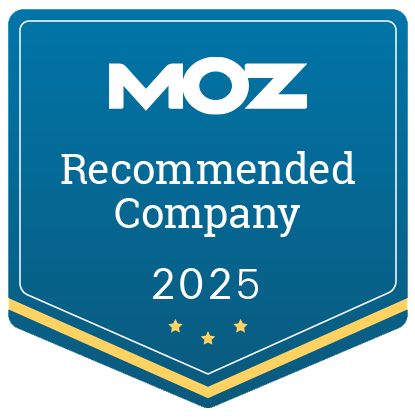Is your website taking longer to load than your morning coffee order? A slow-loading site is one of the most common headaches for website owners, and unfortunately, your visitors won’t wait around. But here’s the good news: most speed issues are fixable once you know what’s causing the holdup.
And that’s precisely what we’re going to break down for you. Let’s explore seven of the most common reasons your website is loading slowly and what you can do to fix it today.
Website Speed MATTERS
You might think a few seconds here and there don't matter, but stats say otherwise:
- 53% of users will bounce if a page takes more than 3 seconds to load.
- A 1-second delay can cut conversions by up to 7%.
- And yes, most users expect a page to load in 2 seconds or less.
Speed affects everything (SEO rankings, user experience, and your bottom line!). So let’s talk fixes.
7 Potential Reasons Your Website is Slow
1. Unoptimized Images
The issue: Uploading high-resolution, oversized images might look great until your visitors click away because your page takes too long to load.
The fix:
- Convert images to modern formats like WebP.
- Use lazy loading so images load only when they’re needed.
- Make sure images are responsive to screen size.
- Compress without sacrificing quality; tools like TinyPNG or ShortPixel are your friends.
2. Too Many HTTP Requests
The issue: Every time someone visits your site, their browser asks your server for every single element—images, stylesheets, fonts, scripts. Too many requests? Slower load times.
The fix:
- Combine CSS and JavaScript files wherever possible.
- Use SVGs or icon fonts instead of multiple image files.
- Cut unnecessary plugins and extras. Keep it clean and lean.
3. Bloated or Inefficient Code
The issue: Too much JavaScript, inline styles, or unused code bogs your site down.
The fix:
- Minify your CSS and JavaScript files.
- Defer non-essential code so it loads after critical parts.
- Use tools like PurifyCSS or UnCSS to remove unused code.
Not sure where to start? A solid site audit can pinpoint the culprits.
4. Too Many or Poorly Coded Plugins
The issue: Plugins can be a blessing, but too many, or ones that are poorly built, can quickly become a curse.
The fix:
- Audit your plugins regularly.
- Disable and delete any that aren’t mission-critical.
- Replace heavy plugins with lighter alternatives.
Especially on platforms like WordPress or Shopify, plugins can make or break your site speed.
5. No Caching
The issue: If your site doesn’t use caching, it has to load every element fresh with each visit. That’s a lot of unnecessary work.
The fix:
- Enable browser caching so repeat visitors get a faster experience.
- Use server-side caching tools like Varnish or built-in CMS plugins.
- Platforms like WP Rocket, W3 Total Cache, or LiteSpeed Cache make this easy.
6. No Content Delivery Network (CDN)
The issue: If your server is in New York but your visitor is in London, it’s going to take longer for your site to load.
The fix:
- Use a CDN (Content Delivery Network) like Cloudflare or Bunny.net.
- A CDN stores cached versions of your content on servers around the world, cutting load time dramatically for global visitors.
7. Outdated CMS or Poor Hosting
The issue: Still on shared hosting from 2012? Outdated CMS and low-quality hosting often mean slow servers, bottlenecks, and long load times.
The fix:
- Update your CMS and plugins regularly to keep things running efficiently.
- Switch to a VPS or managed hosting plan optimized for your platform (like WordPress or Magento).
- Need guidance? Here’s a CMS comparison that can help you decide.
Or get help from a team that knows web development inside and out.
Tools to Check Your Website Speed
Don’t just guess, get the facts! These tools show you exactly what's slowing things down and give you actionable fixes:
Get real-world performance scores and tips based on device type and location with these tools.
Let’s Get Your Website Back Up to Speed
Now that you know what could be causing your website speed to be slow, you’ve got the power to fix it. Whether it’s optimizing images, reducing bloated code, or upgrading your hosting, small tweaks can lead to big results.
Need a hand figuring out where to start? We’re here to help!











